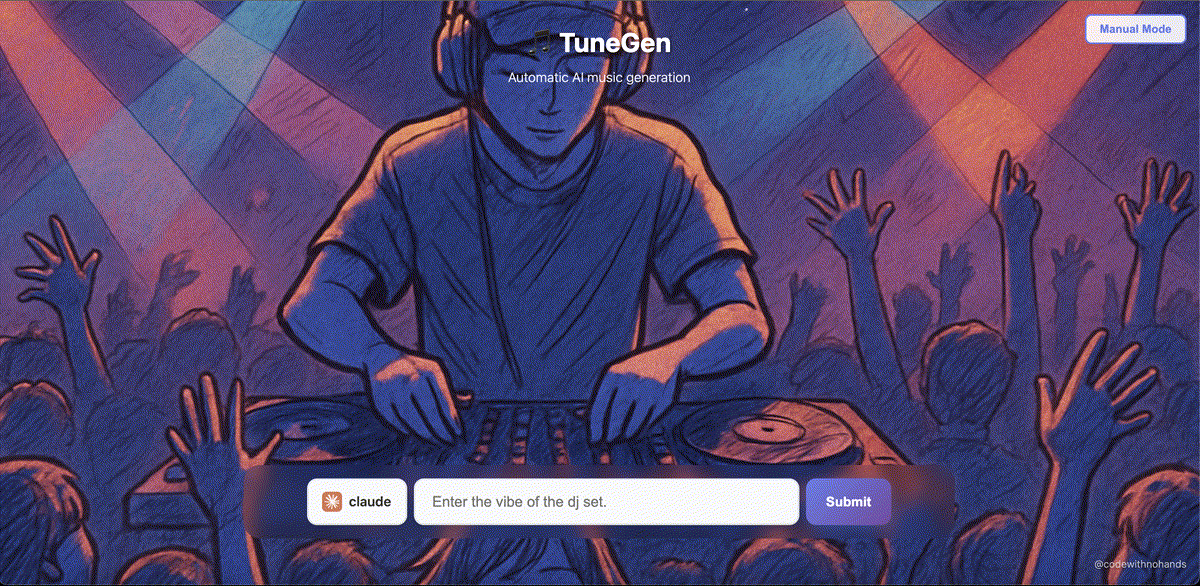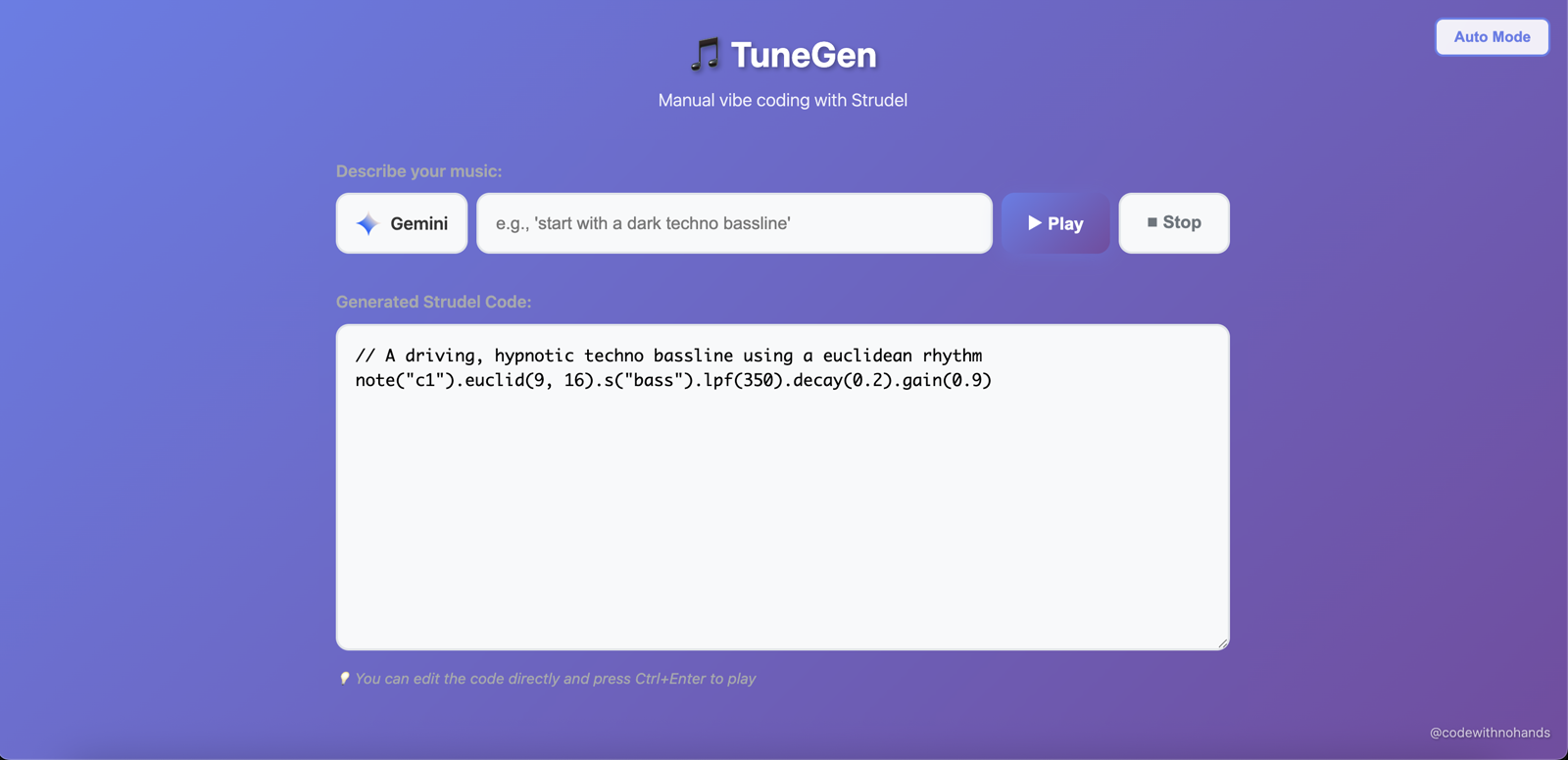TuneGen
https://github.com/giteliot/tunegen
Strudel is a live-coding environment for algorithmic music composition that uses a JavaScript-based syntax to generate, transform, and control musical patterns in real time.
At its core, it lets you write music with code.
Demo: TuneGen in action (DJ Dave)
On the other hand, one of the most adopted use case for LLMs, is writing code! So why not combining the two?!

- Automatic mode: Provide a mood or genre and get an endlessly evolving mix. The system refreshes every ~10 seconds to introduce variation. Mind the model costs for long sessions.

- Manual mode: Iterate interactively. Nudge the groove with short prompts or edit the generated Strudel code directly for fine-grained control.


Screenshots from the app
How It Works
- The browser hosts a Strudel-based live coding environment and audio engine, with a small sample pack and helpful utilities. 2 The backend queries an LLM provider via OpenRouter and returns Strudel code to run in the browser.
- In Auto mode, the loop periodically re-prompts to evolve patterns; in Manual mode, you guide changes incrementally.
Technical Notes
- Web: A Simple Python/Flask app and vanilla es6.
- LLM Integration: Uses OpenRouter with multiple providers (e.g., GPT, Claude, Gemini, Grok) selectable in the UI.
- Docs-to-Prompt Pipeline: Utilities to ingest Strudel MDX docs and consolidate them into an LLM-friendly reference to improve pattern generation.
Here is the end results on the 4 currently main LLMs (GPT-5, Grok4, Gemini 2.5 Pro, Claude Opus 4.1) with a common vibe prompt.
Demo: TuneGen LLM Music Generation (YouTube)